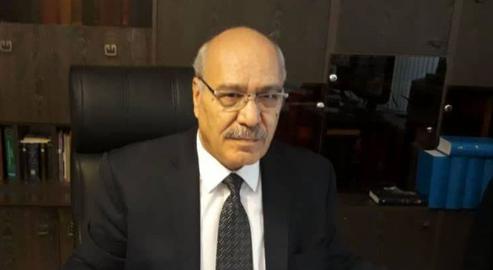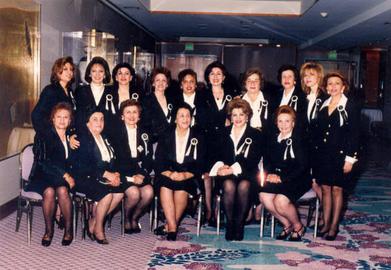On Sunday, April 19, Mohammad Hossein Aghasi, a prominent trial lawyer in Iran, was summoned to a safe house of the Revolutionary Guards Intelligence Organization. Aghasi, who has a long record of defending journalists and political activists, was interrogated for more than an hour and a half for signing a statement that asked international organizations for help in fighting Iran’s coronavirus epidemic.
Earlier in the month, on April 3, a group of civil and political activists had issued the statement [Persian link], asking the World Health Organization and other international relief agencies and human rights organizations for immediate help with the coronavirus crisis in Iran. The statement asked Iranians inside and outside the country to join in a National Relief Committee to cope with the epidemic – far removed from government corruption.
Speaking to IranWire, Aghasi says the Revolutionary Guards intelligence agents saw this statement as an attempt to portray the Iranian regime in a negative light and that it is incompetent in containing the epidemic. During the interrogation, he says, the agents were more interested in finding out whether Aghasi himself had joined the committee or not; at the same time, he says, they did not hide their displeasure at him signing the statement.
Aghasi says the agents called him and summoned him to an address in South Kargar Street in Tehran. “Besides their official premises, both the Revolutionary Guards and the Intelligence Ministry have properties where they conduct some interrogations,” he adds.
Why did he comply with an oral summons? “If I had refused to go, they might have opened a case and prosecuted me,” he says. “Naturally, this was not something that I wanted and I had to go to prevent such a possibility. It is illegal to summon a person by phone [in Iran], but if that person does not comply [with an oral summons] the authorities may open a case ... so that they can summon a person by order of a judge. Experience shows that if a legal case is opened for this reason, it can lead to a long prosecution, ending with unjust and unjustified convictions.”
Aghasi says that his interrogation on the morning of April 19 was conducted in a friendly manner. “It was mostly a dialogue, not a monologue by them,” says Aghasi. “And naturally, considering my age and my experience with political cases, I was not a mere listener.”
What made him believe that the summons he received was genuine? “Security agencies have specific phone numbers and their messages are of a specific kind as well,” says Aghasi. “So, if you get a call from these numbers, you know who is calling. But someone accompanied me to the safe house so that if, God forbid, I did not return, they would know where I was.”
According to Aghasi, three middle-aged men were sitting opposite him at the table but only two of them spoke. “They both spoke extremely politely and in a friendly manner and called me ‘sir’ and ‘Mr. Aghasi,’” he says. “First they thanked me for accepting their invitation and I thanked them for treating me in a friendly way. They said that they were surprised that I had joined the individuals whose names were on the statement, and that I had signed a statement that showed the regime in a negative light by portraying it as incompetent.”
“After some talk, what they wanted to know was whether I was a member of the National Relief Committee, referred to in the statement,” Aghasi says. “They initially believed that I was a member of the committee, but I said: ‘I am not a member of any group or committee and do not want to be. I just signed a statement. I am a lawyer, I want to remain a lawyer and defend those who need a lawyer because of political activities or journalism.’ I explained to them that I signed the statement because I saw it as a social action, not a political one, and because the statement’s aim was to get medical help from international organizations and NGOs.”
What was really bothering the Guards?
Aghasi summarized his one hour and 35 minutes with the intelligence officers of the Revolutionary Guards as such: “In general, what they are sensitive to are organized groups. They take action against any organized group that smells of criticism or opposition. They were under the impression that I was a member of the National Relief Committee, but I explained to them that I was not a member and I did not think that committee had yet been formed. In the end, they thanked me and we said goodbye.”
Besides Mohammad Hossein Aghasi, eight other lawyers and civil and political activists signed the statement on April 3, including Davoud Hermidas-Bavand, a former diplomat and a member of the leadership council of the National Front, Giti Pourfazel, a lawyer, Shahla Entesari, a women’s and human rights activist, Isa Khan-Hatami, a journalist and member of the National Front, Heshmat Tabarzadi, a political activist, Kourosh Zaeem, an author, engineer, inventor and political activist, Esmail Moftizadeh, a political activist, and Mehdi Khazali, a publisher and physician. Most had been arrested and imprisoned more than once in the past because of their political activities.
“Mismanagement, incompetency and structural corruption in the Islamic Republic have led to a rapid spread of spread of the Covid-19 epidemic in Iran and has turned the country into one of the major epicenters of this disease in the world,” the statement read. “Under such conditions, we ask for immediate help from the World Health Organization and international relief and human rights organizations. We also ask Iranians, inside and outside the country, to be in direct contact with the National Relief Committee that is about to be formed.”
Related Coverage:
Iranian Journalists Persecuted for Reporting the Pandemic, 17 April 2020
Treating Coronavirus as a National Security Issue, Iran Media Crack Down Intensifies, 18 March 2020
Critics of Government’s Inept Health Policies Arrested in Iran, 15 March 2020
visit the accountability section
In this section of Iran Wire, you can contact the officials and launch your campaign for various problems

























comments